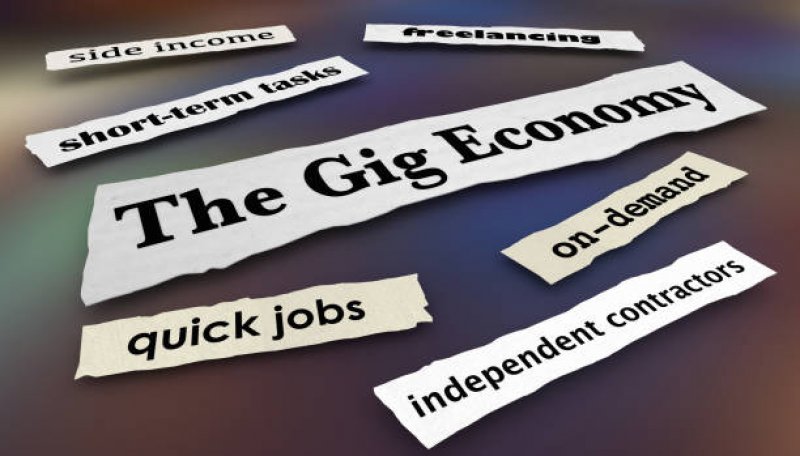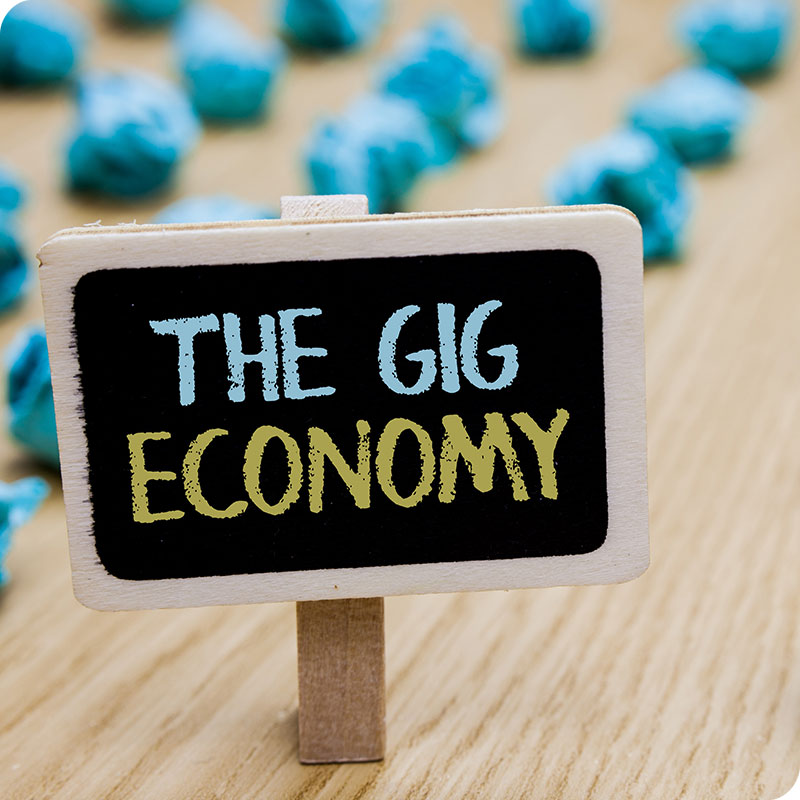The economy of small tasks or gig economy has taken its place definitively in our daily life. If you are not able to go on a trip without looking for accommodation on AirBnB or end a week without ordering food via Balloon or Deliveroo, then you are part of the gig economy. Nevertheless, what exactly is it and what place does it take in the job market?
The first thing we need to understand is what this concept is, which was born in the midst of the sharing economy and is growing and reproducing itself using crowdsourcing platforms.
IT IS NOT A TRADE
This phenomenon is associated with specific jobs, which are carried out in particular and defined periods of time, and always at the request of the client or consumer.
It is therefore one leg of the sharing economy, except that it does not involve an exchange or barter between two 'equals', but rather a transaction of a service between a client and the professional who provides it.
So how does this differ from the freelancer figure? A priori, very little. Although this is where the role of online crowdsourcing platforms or marketplaces comes into play.
Because freelancers are autonomous workers responsible for their turnover, their relationship with suppliers, their marketing and all aspects related to their activity, while in the case of professionals who perform tasks in gig economy format there is always an intermediary, either a website or an app, which assumes these roles.
"Removing most of the commercial work greatly increases the capacity and productivity of the self-employed and thus achieves even greater gains than those of an employee. You do not have to go out on the streets to look for clients or send your CV, you just have to take care of your profile in the marketplaces and get good ratings from your clients," describes Jorge Fields, partner at Cupio Capital, an investor at EAE Invierte.
CHANGING LIGHT BULBS, FOOD ON CALL...
The term 'gig', which in colloquial English means concert, is translated in this context to the performance of specific tasks such as picking up food at a restaurant and taking it to a home or picking up a passenger at an address and transferring it to another point on the map.
Companies such as Uber, Deliveroo or AirBnB have landed and settled in Spain, where local projects such as Glovo, Cabify, Multihelpers, Visualeo, Outvise or Gudog are also beginning to develop. We find gig economy applications when we need to repair something at home, paint a wall or even change a light bulb. Also to learn a language or a specific skill, to take care of our pets or to bring us the groceries from the supermarket.
Thus, through these pages segmented by type of activity, professionals offer and inform themselves of their availability so that companies and individuals can hire their services to carry out a specific and limited task in space and time.
In addition, this, depending on the type of web or app, will be done directly with the professional or indirectly, being the intermediary who assigns the work or order to the most suitable professional.
FLEXIBILITY, TIMELINESS...
Conceived as an addition to other more 'stable' jobs or activities such as studying a career, the concept of the gig economy became popular in the United States during the first years of the 2007 crisis and developed in the context of the unemployment that was increasing during that period.
What does it mean to perform a task subject to the gig economy? Its main characteristics are time flexibility, relocation, quick money and temporariness. Moreover, it is closely linked to digitalization and technological innovation. "The client is already more and more digitalized and using a networked economic model allows each professional to have more and more options to perform jobs", assures Adrian Miranda, CEO and founder of Multihelpers.
"In addition, in our desire to provide value, we bring them opportunities that they could not access alone, such as collaborations with companies like AEDAS, Mutua Madrileña, PADI Gestión, Apartyment, Spotahome or Housers, among others," he adds.
These are all factors that bring this new type of economy closer to young people.
"There is no fixed salary, no sick leave, no boss, no office, no schedule. Almost without realizing it, about 30% of American workers and more than 160 million Europeans are already part of the gig economy. Growth has been exponential in recent years," says Jorge Fields.
OPPORTUNITY VS. PRECIOUSNESS
Both Millennials and Generation Z represent the generational relay and therefore bring new ways of doing things. Moreover, this works for both leisure and work. A priori, we feel a greater attraction towards jobs that meet some of the characteristics of the gig economy.
Although it is worth considering, whether it was the chicken or the egg first. That is to say, if it is the young people who naturally look for these factors or if they opt for this type of alternative in the absence of other better forms of work.
"It is important that we can adapt to all the changes that are constantly taking place both in the world of work and in production or in the way people are managed," explains Multihelpers' CEO, who points out that "the gap between the model born from the gig economy and the one that was already taking place is not as different as it may be in other sectors.
Deloitte states in a report that only 6% of the millennials claim to have chosen a gig economy job instead of a full time job. Sometimes the job opportunities offered by this sharing economy model are closer to precariousness. "The gig economy can be an opportunity for many and a punishment for others, but the truth is that the trend has been consolidated and will continue," notes Jorge Fields, a partner at Cupio Capital.
In this sense, the authorities have already begun to take steps to curb some irregularities that have undermined workers' rights. In Spain, Glovo is in the midst of a constant back-and-forth judicial process, in some cases in favour and in others against, regarding its relationship with riders or distributors. The platform is also waiting for the Supreme Court to rule on the matter.
In Europe, new legislation was passed last April to protect the minimum rights of gig economy employees, focusing on ensuring transparent and predictable conditions on probation, working hours and free compulsory training.
ns.















